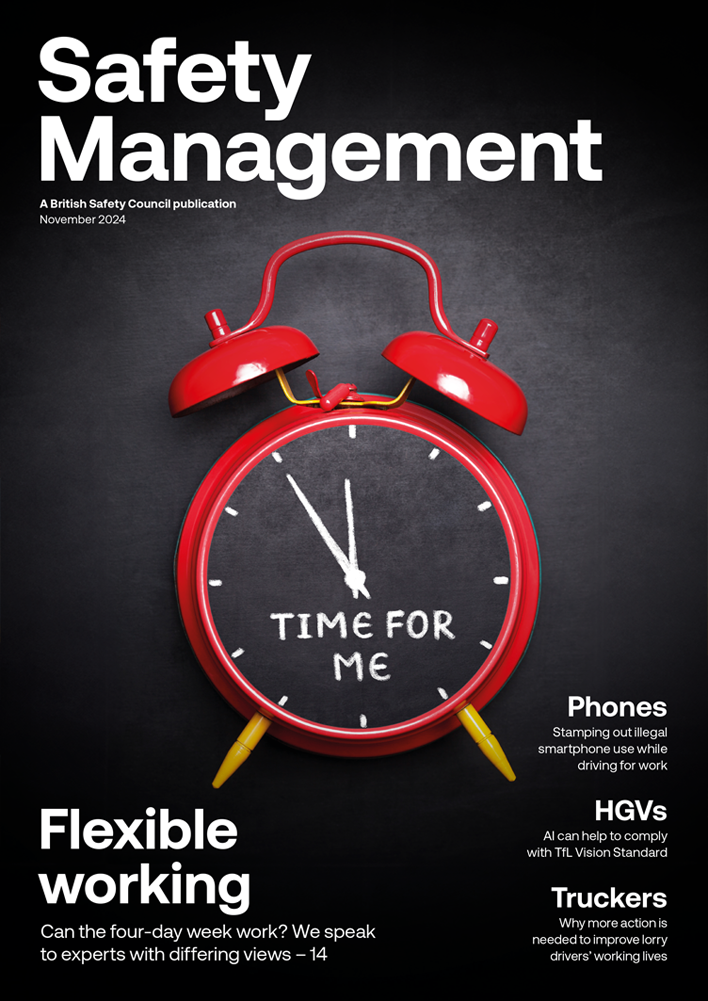Understanding the underlying reasons why workers are failing to follow safety rules is crucial for developing the right ‘nudges’ and processes to encourage staff to always act in a safe fashion.
Features
Why understanding workers’ attitudes to rules is key to improving safety culture
When we are young, we do as we are told simply because we‘re told to at home and at school. It’s a learned response to our environment and our social norms but as we grow and develop our own individual thought processes, we learn that breaking the ‘no running in the corridor at school’ rule doesn’t necessarily end in disaster.
Encouraging the right decision
According to research published on Nature.com, the brain has already processed the data on how we are going to respond 10 seconds before we act. We use different parts of the brain for different processes, but the vast majority of our decisions are already automated. Our brain has already weighed up the different potential outcomes and made its decision before we act. So, if a person is breaking the rules in a work environment, we have to ask why.
Are they pushed for time? Is it because of staff resourcing issues? Are they facing other external pressures? Do they want (or need) to get home early?
Only by considering all the things that impact on an individual worker’s day, and the way our brains think, can we use this information to adapt and apply rules.
Leaders must understand their people
The person who does the job is the expert, so leaders must try to understand why that person may be breaking a rule. There is probably a good reason.
- You can ask certain questions to try and understand your workers’ decision-making processes, such as:
- What’s stopping you from achieving or completing this task?
- What would make it easier for you to carry out and/or finish the task?
- What is making this job really hard for you?
When you gain people’s answers, you can break down the reasoning behind their desired and undesired behaviours. Team leaders are then able to create processes that encourages rule following – also known as ‘nudge theory’.
The psychology: risk homeostasis - aka ‘what can you get away with?’
Each person has a level of risk they find acceptable. As we push a boundary, and get away with it, this becomes our new normal. And because we got away with it last time, we’re likely to do it again... and again.
But particularly in high-risk work environments, risk homeostasis can be life threatening.
Making safety a ‘priority’ isn’t good enough
It’s rare for a week to go by without news of injuries or deaths in the health and safety trade press.
There can’t be any more talk of ‘health and safety being our highest priority’. Instead, health and safety must be a core value in an organisation. Leaders must be willing to stand up and say certain behaviours aren’t acceptable and remind workers of the company values.
Priorities move up or down a list, depending on the tasks coming in. For example, if meeting a finance deadline suddenly becomes urgent, safety will fall down the ‘priority’ list. But a value remains important regardless of competing priorities. It’s an internal behaviour underpinning all aspects of an organisation and thus, as a value, behaving unsafely should feel uncomfortable as you’re undermining the things that you and your company hold dear.
Ultimately, if an employer doesn’t put the time and effort into understanding what is happening, they will never be able to change the situation and people will continue to break rules.
Leadership, communications and employee engagement are the three top areas to consider when investigating why people break the rules, why things go wrong, and why are people are injured at work.
About the author
Sarah Prince has an MSc in the Psychology of Behaviour Change in Health and Safety and more than 20 years’ experience in developing and leading safety culture programmes. Contact her here.
For more information on the services offered by Tribe Culture Change click here.
FEATURES

Winter pressures mean good mental health support is crucial
By Kevin Bampton, British Occupational Hygiene Society on 01 December 2021
I will tell anyone who cares to listen that winter 2020/2021 was a historic moment in British social and economic history. British business became, for the first time ever, my public health hero.

The big sleep
By Marcus Herbert, British Safety Council on 01 December 2021
Poor quality sleep can affect both our physical and psychological wellbeing, but simple lifestyle changes can make a big difference.

Why changes to recycling legislation in England are an opportunity, not a burden
By Adriana Olaya Rodriguez, Newell Brands on 12 November 2024
From March 2025, many businesses in England will have to begin separating their recyclable and food waste from general waste prior to collection, but the changes will bring wider business benefits, such as reduced waste disposal costs and improved sustainability credentials.



